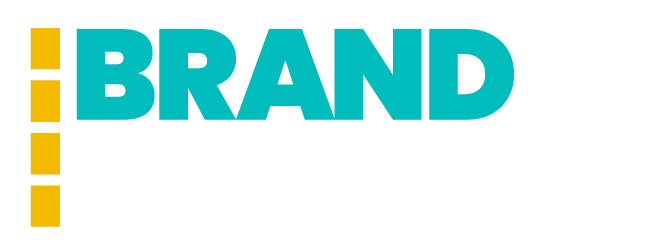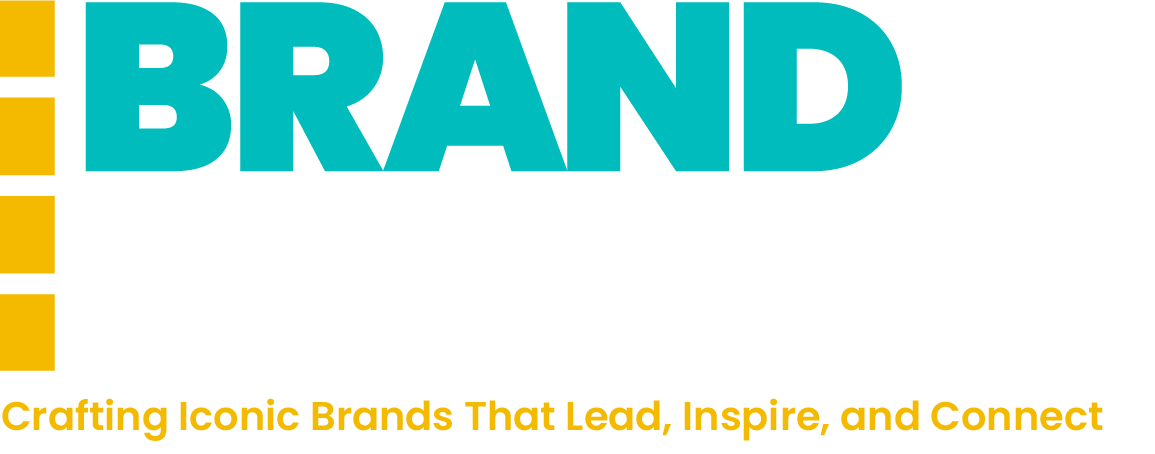The Psychology Behind Luxury Brand Identity Design: Why Premium Brands Think Differently
Meta Description: Discover how psychology shapes luxury brand identity design and why premium brands think differently. Learn from Martina Boshra's unique approach at iBrandIdentity.
Most branding agencies will tell you that luxury is about exclusivity, status, or price. But here's the truth: luxury isn't just about what you sell, it's about how you make people feel. As someone with ADHD, I see patterns others miss. And in luxury branding, those hidden patterns are what separate a forgettable logo from a legacy brand. My cancer journey taught me that resilience and authenticity always outlast trends. The same applies to brands—especially premium ones.
At iBrandIdentity, we don't just create brands—we build legacies. A luxury brand identity isn't about throwing gold foil on packaging or picking a serif font. It's about psychology. It's about how your audience thinks, feels, and decides whether you're worth their time, attention, and money. Most agencies focus on pretty logos. I focus on profit. And in the luxury market, profit is tied directly to psychology.
Why Luxury Brands Think Differently
Luxury brands live in a different mental space than everyday brands. People don't buy luxury because they need it—they buy it because of what it says about them. Luxury triggers identity, emotion, and aspiration all at once. If you're not tapping into those layers, you're not building a premium brand—you're just making expensive products.
Think about it. A Rolex doesn't tell time better than your iPhone. A Hermès Birkin bag doesn't hold your belongings more securely than a canvas tote. But both command massive value because they mean something deeper. Luxury is psychology first, function second.
Premium brands think differently because they understand the human need for recognition, belonging, and legacy. That's where iBrandIdentity comes in. We study those psychological triggers and build brand identities that work as hard as you do.
The Problem Most Businesses Face
Here's where many ambitious entrepreneurs fail: they confuse luxury with decoration. They think an elegant font and muted color palette equals "premium." They focus on surface-level design and miss the deeper psychology.
The result? A brand that looks good on Instagram but fails to command authority in real markets. I've seen businesses spend six figures on "high-end" rebrands, only to end up competing on price again because their brand lacked substance.
Without the right psychology, you're just packaging. And packaging alone won't justify premium prices.
The Psychology Behind Luxury Branding
Luxury branding relies on three psychological pillars that most agencies ignore:
1. Perception of Scarcity
People value what they can't easily have. Luxury brands intentionally limit access—whether through price, production, or distribution. This creates desire. At iBrandIdentity, I show clients how to use scarcity strategically, not just as a gimmick. Scarcity should feel like privilege, not exclusion.
Think of Ferrari. They don't mass produce cars. They release limited runs, ensuring their owners feel part of an exclusive club. That exclusivity is part of the value.
2. Identity Reflection
Luxury brands act like mirrors. When someone wears Chanel or drives a Porsche, they're telling the world something about themselves. Premium brands know how to reflect back the identity their customers want to project.
This is why luxury clients care more about story than specs. A high-end watch isn't just steel and mechanics—it's heritage, mastery, and belonging. At iBrandIdentity, I help brands craft identities that become aspirational mirrors for their audience.
3. Emotional Resonance
Luxury isn't rational. It's emotional. That's why people will wait months on a waitlist or spend double just for the experience. My cancer journey taught me that emotions drive every big decision—especially the ones that matter most. Luxury brands don't sell products, they sell feelings.
Think of Louis Vuitton's flagship stores. They aren't just retail spaces—they're theaters of identity. Customers aren't buying a bag; they're buying how it feels to be seen carrying that bag.
Beyond the Logo: How Luxury Identity Works
Most people think luxury branding is about visual design. Yes, fonts, colors, and symbols matter. But without the right psychological foundation, design is decoration.
- Typography: Serif fonts don't automatically equal premium. Typography needs to align with your audience's subconscious associations. For some markets, clean sans-serif may feel more exclusive.
- Color: Gold isn't always luxury. In fintech, deep blues or blacks may convey more authority. In luxury retail, minimalism often signals exclusivity more than vibrancy.
- Symbols: A crest or emblem doesn't create legacy. Legacy comes from the meaning behind the symbol, not the symbol itself.
At iBrandIdentity, I decode these layers so brands stop wasting money on aesthetics that don't convert.
Real Case Study: KEMET Reisen - Creating Premium Travel Authority
Let me share how luxury psychology worked for one of my clients, KEMET Reisen. They came to me with a specific challenge: German-speaking travelers visiting Egypt often faced language barriers, cultural misunderstandings, and unreliable service providers. Despite Egypt's rich heritage, many German tourists struggled with trust and communication.
KEMET Reisen needed to establish itself as the premier choice for German-speaking travelers seeking private, authentic, and stress-free Egyptian adventures. But how do you position a travel service as luxury when your market assumes Egyptian tourism is budget-oriented?
We applied luxury brand psychology principles to transform their positioning. Instead of competing on price or convenience, we positioned KEMET Reisen around three key luxury triggers:
Scarcity Through Expertise: We positioned their German-Egyptian cultural knowledge as rare and valuable. Not everyone could provide this level of cultural bridge-building.
Identity Reflection: We crafted messaging that appealed to sophisticated German travelers who saw themselves as cultural explorers, not tourists. The brand became a reflection of their refined travel values.
Emotional Resonance: The visual identity drew inspiration from Egypt's timeless landscapes while maintaining the clean, trustworthy aesthetic expected by German audiences. We used earth tones—sand, turquoise, stone, and gold—to evoke Egypt's natural beauty.
The logo design drew directly from ancient Egyptian heritage while capturing modern adventure spirit. We incorporated the papyrus plant as the central visual element, with custom typography mimicking the flowing waves of the Nile River. A sun element represented both Ra in Egyptian mythology and contemporary Red Sea experiences.
The result? KEMET Reisen positioned itself as the premium choice for discerning German travelers. They moved from competing with budget tour operators to commanding authority in the luxury travel space. The brand psychology we created made price comparisons irrelevant—clients chose KEMET for the exclusive cultural experience, not the cost.
This demonstrates how luxury psychology works across industries. Whether it's fashion, travel, or fintech, the same psychological principles drive premium positioning.
The Science Behind Premium Perception
Harvard Business Review's research on luxury consumer behavior confirms what I see in client work: luxury purchasing is driven by identity goals, not functional needs. People buy luxury to signal status, achieve belonging, and reinforce their self-concept.
Psychology Today's studies on consumer psychology show that luxury brands succeed by tapping into what researchers call "self-enhancement motivation"—the desire to feel better about ourselves through our choices.
This validates my approach at iBrandIdentity. When we positioned KEMET Reisen as a cultural authority rather than a tour service, we tapped into their clients' desire to see themselves as sophisticated travelers, not typical tourists.
Practical Steps to Think Like a Luxury Brand
If you want to position your business as premium, stop copying what mainstream brands do. Here's where to start:
1. Define Your Core Promise
What do you stand for beyond products? Luxury brands sell meaning, not things. KEMET Reisen doesn't just sell Egypt tours—they promise authentic cultural immersion for sophisticated travelers.
2. Use Scarcity Wisely
Don't be available everywhere. Make access feel like a privilege. Scarcity should elevate value, not alienate customers. Consider offering limited-edition collections, exclusive memberships, or invitation-only access.
3. Focus on Identity
Ask yourself—what identity shift does my client experience when they choose me? If your brand makes someone feel smarter, stronger, or more respected, you're operating in luxury psychology.
4. Elevate Every Touchpoint
From your email signature to your packaging, every detail must reinforce premium psychology. A sloppy invoice can break the luxury illusion just as much as a bad logo.
5. Prioritize Experience Over Features
Luxury clients buy stories, feelings, and experiences—not specs. Apple doesn't market storage space; they sell simplicity and aspiration. Your client doesn't just want a service—they want how it makes them feel.
Why Work With iBrandIdentity
At iBrandIdentity, I don't just give you a logo and call it a day. I dig into the psychology that drives high-value clients to choose you—and pay you what you're worth. I know firsthand that life is too short for shallow branding.
My ADHD lets me see the hidden connections between design, behavior, and profit. My cancer journey taught me that resilience and meaning matter more than trends. That's why my clients don't just get brands—they get authority, longevity, and profit.
The KEMET Reisen case study shows how luxury psychology transforms businesses across industries. By understanding what drives premium perception, we created a travel brand that commands authority instead of competing on price.
Most agencies focus on "looking good." I focus on making you unforgettable, irreplaceable, and premium.
Conclusion
Luxury brand identity design is about psychology, not decoration. It's about understanding how people think, what they desire, and how they make choices. Premium brands think differently because they operate on a deeper level—identity, scarcity, and emotion.
If you're tired of being another "pretty" brand that struggles to charge premium prices, it's time to think differently. It's time to think like a luxury brand.
The businesses that master luxury psychology don't just survive—they thrive. They command premium prices, attract high-value clients, and build lasting authority in their markets.
Your brand should work as hard as you do. Make sure it's working on the right psychological level.
👉 Ready to build a brand that commands premium prices? Contact me at inquire@ibrandidentity.com
👉 Want to see how we positioned KEMET Reisen as premium travel authority? Visit ibrandidentity.com/case-studies/kemet-reisen
👉 If you're serious about building a legacy brand, let's start the conversation: ibrandidentity.com/contact

%402x.svg)
%402x%20(2).svg)



